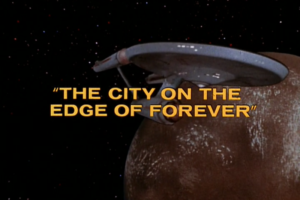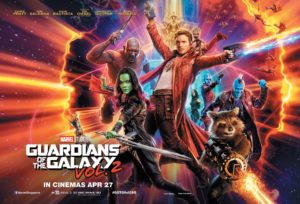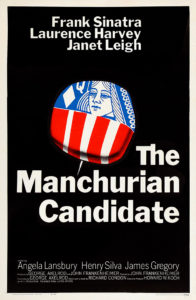Harlan Ellison is a powerful voice in speculative fiction, a celebrity within the genre subject to countless second-hand stories, and the credited writer in what is arguably the best episode of Star Trek, The City on the Edge of Forever.
I t is a well know within the industry that Harlan was -displeased- with the final version of City and that identity of the person who re-wrote his screenplay into the final version was a secret for decades. (Eventually it was reveal to be the show’s story editor D.C.Fontana, a fantastic writer herself.) I have read both the final version and Harlan’s original script, published as part of his book about the experience.
t is a well know within the industry that Harlan was -displeased- with the final version of City and that identity of the person who re-wrote his screenplay into the final version was a secret for decades. (Eventually it was reveal to be the show’s story editor D.C.Fontana, a fantastic writer herself.) I have read both the final version and Harlan’s original script, published as part of his book about the experience.
There is no doubt a number of major changes were made to the script, some of them lost touching moments of history, some of the added wonderful moments of comedy, (Stones knives and bearskins) but the greatest change and the one that appeared to upset Harlan the most involves the story’s resolution.
Quick recap of the story: Kirk and Spock have followed McCoy through a time portal to the great depression where McCoy, under the influence of an accidental drug overdose, somehow alters history and prevents the formation of the Federation. They discover it is because he saved a woman, Edith Keeler, from a traffic accident and she prevents the US’s entry into WWII, leading to a Nazi victory and a new dark age.
In Harlan’s original vision, at the moment that the truck is barreling down on Edith, both McCoy and Kirk, Kirk because he has fallen in love with the idealistic pacifist, rush to save her, but cold, emotionless Spock holds them back, dooming Edit and saving the future.
For the Broadcast Version when the truck speeds towards Edith, it is Kirk, though in love with her, that restrains McCoy, killing Edith and saving the Future.
Harlan has said that in his opinion it makes sense for Spock to be the one to hold the emotional men back, that he is the only character capable of taking the required action and there is a powerful logic to that argument.
However logical, I think it is weaker storytelling to have Spock force the issue. To me the most important and powerful stories are about characters, their choices, and the consequences of those choices. Spock saving the future is a foregone choice, hardly one at all. The consequence to Spock is that he may damage his relationship with these two humans, but given his unemotional nature that is hardly a consequence of importance compared to the entirety of history.
Kirk making that choice is much more powerful. He is a man of passion and emotions, the abstract future weighed against the very real woman he loves is an agonizing choice. The consequences are personally devastating and irrevocable. It ranks right up there with Sam Spade sending Bridget over for killing Miles Archer, but has even more of a gut punch because Edith was pure and Bridget was evil.
No, the better storytelling device is Kirk torn and making the decision that will haunt him to the end of his days.




